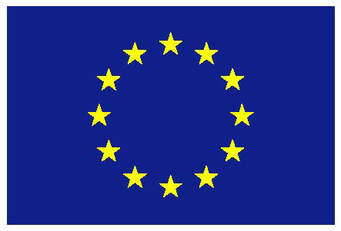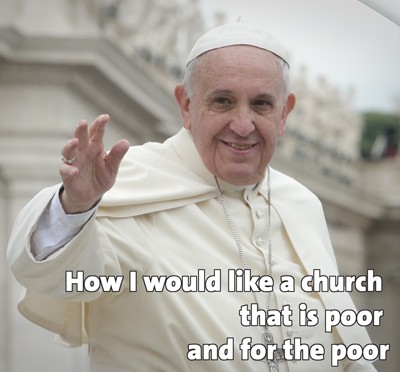
Response to Brexit from War on Want
Whichever way you voted, many will feel a sense of relief that the referendum is over. The mainstream debate became increasingly nasty and divisive as it neared yesterday’s climax, with friends on all points of the political spectrum taking opposing sides.
We now need to rebuild our alliances behind the vision of a world we can all believe in.
War on Want will work with sister organisations across Europe to continue the campaign against the EU’s damaging free trade deals. As the UK now turns to develop its own relations with the rest of the world, we will also build the call for a progressive trade and investment policy from Westminster.
We must ensure that the Leave vote cannot be claimed as a mandate for the UK to develop its own trade deals on the negative lines that it has traditionally supported within the EU.
The news coming out of Brussels is that the European Commission is now seeking to deny national parliaments a vote on CETA – despite numerous promises that the deal would have to be approved by parliamentarians in every EU member state. more here
War on Want will be launching a campaign this autumn for migrant workers’ rights. We were appalled to see the scapegoating of migrants and refugees that became such a feature of the EU referendum debate. Please join us now to be part of the debate.

What next? – A strong message from Christians in Politics
‘More than ever, we need Christians willing to engage in the political process, build relationships and serve their communities during this time of transition.’
Now with the EU Referendum over, many of you will be asking if you’ve felt galvanized – or even frustrated – by politics over the last few months and want to commit to engaging more long-term, we’d love to connect with you.
for more information click here

NJPN Conference – Engaging in the political process
At a time when so many are disengaged from the political process the Annual Justice & Peace Conference in July, Justice, Power and Responsibility; How Can Democracy Work for the Common Good? takes up the challenge of how to empower people to take responsibility and participate in the decisions that shape our lives.
Jon Cruddas MP will set out a vision of politics which takes people beyond dependency without abandoning them to the mercy of the markets.
Jenny Sinclair (daughter of the late Bishop David Sheppard) of Together for the Common Good will reflect on our responsibility to work for the common good, based on Catholic Social Teaching.
Polly Jones of Global Justice Now will address the power of corporations and international trade.
Takura Gwatiyanya of Caritas Harare will look at developing democracy and participation in developing countries.
Workshops will explore: empowering those in poverty in the UK; empowering women in fragile states; the money system; tax dodging; how money and investments fuel wars; rethinking our notion of progress; local responses to fracking and food waste; engaging with minority communities; the role of the media; local energy co-ops; responding to the refugee crisis; homelessness; engaging with local politicians; improving social media skills. Governance in the Church will also be addressed and a Just Fair market place will offer information and resources from many organisations.
Programmes will be run for children and young people, linked to the theme of the conference.
Christine Allen of Christian Aid will chair the conference and a panel discussion is to be chaired by Simon Barrow Director of the Christian think tank Ekklesia.
For more information contact NJPN, 39 Eccleston Square, London SW1V1BZ,
Tel 02079014864
Email: admin@justice-and-peace.org.uk.

What does it mean to be a church of the poor?
Pope Francis has said that he wants “a poor Church, for the poor”. But what does it actually mean to be a Church of and for the poor? Here in the UK, are our churches – of all traditions – doing enough to stand in solidarity with people in poverty?
Church Action on Poverty’s new publication, Church of the Poor?, was launched last week to explore that question and call our Churches to do more. Hundreds of people have already downloaded or ordered it.
Click here for more information

Pax Christi UK reflects on Peacemaking and Europe
In its latest newsletter Pax Christi UK offers three articles on the peacemaking role of Europe. One of its Vice Presidents, Bruce Kent, reflects on the peace history of the EU. Partners from Pax Christi Germany and Pax Netherlands offer reasons as to why the UK should stay in Europe.
Bruce Kent writes: “We today, especially in Pax Christi, can be under no illusions. There is a lot of peacemaking educational work still to do. Ignorance about both the European Union and the United Nations is widespread. Yet both were founded primarily as building blocks of peace.”
Erik Laan from PAX Netherlands says: “We need the UK in, to keep this European peace project alive. We need the UK in, to maintain its relevance as an important peace actor in the world.
We need the UK in, to ensure it has enough leverage to make a difference.”
Pax Christi UK hopes that this resource will help to inform reflection and discussion on the EU Referendum
The Catholic Church in the European Union are due to issue a report on the Peace and Europe’s Vocation later this month.
The newsletter is here

NJPN Executive express concern at the tone and content of EU debate
At a meeting on 1 June 2016 members of NJPN executive expressed great concern at the content and tone of the debate on the forthcoming European referendum.
The debate, as portrayed in the media has focussed almost entirely on economic self-interest and/or the magnitude and unwelcome effect of immigration, in effect glossing over the very pressing, if not desperate reasons whole families are risking everything to find a living elsewhere, against a backdrop of the UK closing its borders to all but a handful of refugees with legitimate claims to our hospitality – in this debate the horrendous plight of thousands of rootless human beings is treated as ‘a political football’, in the very year that Pope Francis has called us to join him in a ‘Year of Mercy’.
We would urge that when considering how to vote, our decision reflects the principles of Catholic Social Teaching, a vision for the future where the common good of ALL – in the UK, in Europe, and globally – is paramount.
What must decide our vote is not just our dreams and aspirations, but the answers to the very practical consequences to the least advantaged.
As Christians we are called to proclaim Gospel values and to a discipleship of service to others and self-sacrifice in the face of human need, and to work for truth and a more just and peaceful world for all people, ‘solidarity’ as St John Paul II called it.
We have a responsibility to engage with the issues involved and carefully consider the long term implications of our decision making, as is only right in the light of the concept of ‘subsidiarity’. But this is to be understood not as a reclamation of ‘sovereignty’, but a right ordering of responsibility in our service of others. This includes the human rights we accord to others, to make choices with which we might not be comfortable. This is not to say that the current application of human rights judgments has found the right balance, but since human rights are universal, the UK’s take on these matters is better informed when working with others across Europe and beyond.
Whereas a vote to Remain faces us with broadly a continuation of what we know or have in the pipe-line, a vote for Brexit is to sanction a definite change in our situation. Would such a change lead to the UK’s Overseas Aid budget being cut or increased? Would a change lead to a more or less sympathetic attitude to migration and asylum? Would a change improve the working conditions of the lower paid especially, or put them at risk? Would the new UK be arguing for stronger and sooner measures against Climate Change, or not? With the current mind-set so firmly looking at our commercial and financial wellbeing, would Brexit herald improved environmental standards in our working practices or not? Would incoming overseas investment face stricter standards or be offered incentives to the disadvantage of our workforce or environment?
All of these changes would be entrusted to those leading the Brexit campaign. Are the political forces supporting Brexit capable of managing this transition in a way that does justice to today’s and tomorrow’s children, particularly the poor? Would we see particular favour being bestowed on one part of society, or part of the economy to the disadvantage of another?
Finally, whichever way we vote, there will be consequences which we are reasonably expected to anticipate.
Remain supporters must take responsibility for and seriously consider what leadership from State and Church will be required to address the real fears around population changes, on housing, jobs, wages and schooling. If the EU has not treated the UK with enough consideration in the past, what further impetus does our political leadership require to put our case more persuasively? Does working as an MEP get the credit deserved and do our political parties encourage their best talent to apply?
Brexit supporters must take responsibility for and consider seriously another set of issues. Would Brexit make the EU stronger or weaker? Would the departure of the UK encourage other countries to leave? If the vote in Scotland, Northern Ireland or Wales is to Remain, and that in England for Brexit, is social and political cohesion between our regions improved or jeopardised? Are the prospects for the situation at the border between Northern Ireland/UK and Republic of Ireland/EU, at the moment more relaxed than for decades, likely to be improved or made more complicated?
The Executive of the National Justice and Peace Network is fully aware that many more issues are at stake. Those mentioned are just some about which large parts of the Catholic and other faith communities have been concerned, put their talents, time and financial support behind, and campaigned vigorously and to good effect.
We urge all Christians to commit their decision on which way to vote, to deep prayer, serious reflection on their calling as disciples not of political masters, but of the Lord of All, and to remember the efforts of countless Christians and others who have invested themselves already in working for the common good.
The Network of Christian Peace Organisations – A Trident Briefing
The Network of Christian Peace Organisations, of which Pax Christi is a member, has just issued a Trident Briefing to encourage individuals, organisations and churches to engage in critical debate about the decision, to be taken later this year, on the replacement of Trident, the British nuclear weapons system.
The Briefing will be circulated through the thirteen member organisations of NCPO which includes Pax Christi, Quaker Peace & Social Witness, Christian CND, Fellowship of Reconciliation and the Student Christian Movement as well as within the wider Christian community.
NCPO hope that the Briefing will also encourage people to take part in national lobby of Parliament on Trident planned for 13 July.
It offers arguments and questions including those of costs, issues of legality and good faith, humanitarian concerns and concepts of security.
It states:, ” As Christians, we put our faith in God rather than in weapons… the longer we rely on these weapons, the greater the likelihood that they will be used by accident or design. It is gross misreading of history that the only reason countries have not attacked us in the last 70 years is because they were ‘deterred’ by the threat of massive nuclear retaliation”.
The briefing quotes Pope Francis and his message to the conference on the Humanitarian Impact of Nuclear Weapons in Vienna in 2014: “Nuclear deterrence and the threat of mutually assured destruction cannot be the basis for an ethics of fraternity and peaceful co-existence among people and states”.
https://paxchristi.org.uk/wp/wp-content/uploads/2013/12/Final-Trident-Briefing.pdf

Read the summer issue of SPARK now
A message from Church Action on Poverty:
‘SPARK is our print newsletter, circulated to all of our supporters three times a year. The summer 2016 issue is on its way out to all our supporters in print right now. It includes exciting content from our new project Church of the Poor? – some challenging reflections from a Franciscan brother and the Co-Principal of the Northern Baptist College, plus worship and prayer materials for you to use. It also includes more news on the upcoming campaign to End HUnger in the UK. We hope you’ll find it inspiring.’
To download click here

Christians in Politics News – June edition
‘Christians in Politics is an all-party, non-denominational platform for Christians involved, or seeking to get involved, in politics and public life.’
For further details click here

Europe and the Common Good
In the online journal of the Jesuits in Britain, Patrick Riordan SJ writes: ‘we have neglected to form the political culture in which a reasonable debate about membership of the EU can take place.’
He goes on to say that: ‘the principle of solidarity reminds us that our common humanity, our interdependence, and our knowledge of the plight of our neighbours oblige us to take steps to deal with the problems that affect them.’
To read the article click here










